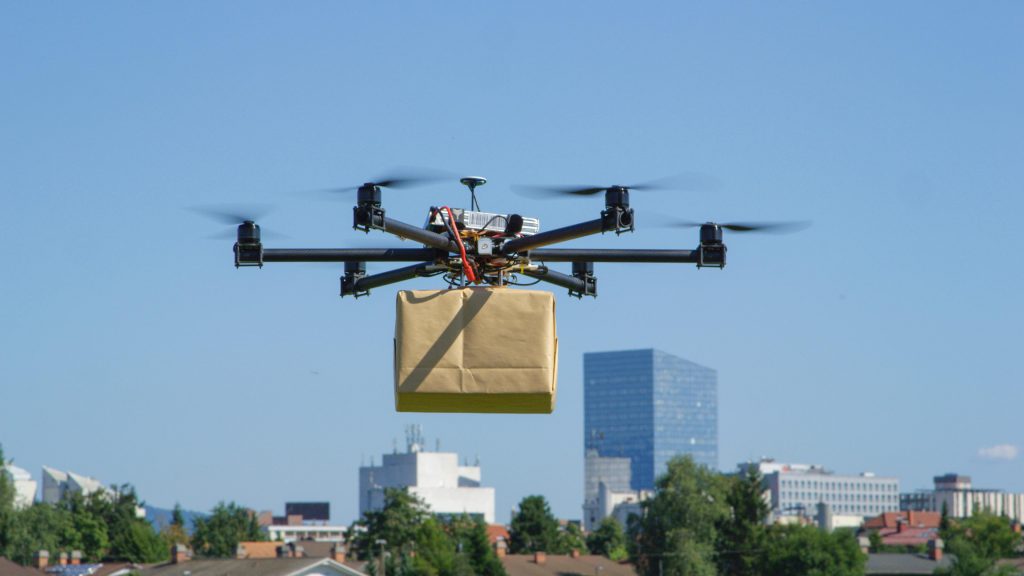Launching a career in aviation with a concentration in unmanned aerial systems is easier than most expect. Even if you are not a tech wizard, an engineering genius or a mechanical guru, you can earn a BS in Aviation/Aerospace with a Concentration in Unmanned Aerial Systems (UAS).
Our undergraduate aviation/aerospace degree program has served as an invaluable stepping stone for countless people looking to work with unmanned aerial systems in a position with benefits and ultimately get the most out of life.
Earn Your Aviation/Aerospace Degree and Start Your Career
As long as you are willing to learn about this emerging technology and work hard, you will succeed with an Everglades University Aviation/Aerospace degree in-hand. In particular, our Bachelor of Science Degree in Aviation/Aerospace with a Concentration in Unmanned Aerial Systems (UAS) will prove particularly helpful to those looking to kick-start a career in this dynamic field. Our undergraduate program provides students with a diverse array of aviation courses as well as management courses and UAS concentration courses intended to prepare students for FAA Certification.
The purpose of the degree is to prepare Everglades University graduates for job placement and subsequent career advancement in the aviation field.

We are quite proud of the fact that our aviation program graduates are well-prepared to handle the many challenges of the ever-changing aviation industry.
Opt for a concentration in unmanned aerial systems and you will be exposed to the essential elements of operations. Our students are provided with a robust aviation foundation that serves as a launching pad for career success. Whether you would like to work as a technician, sensor operator, a mission planner or in another role in the unmanned aviation field, you will feel perfectly comfortable segueing to one of these lucrative positions after completing our degree program.
Once you have earned your degree, you will have the knowledge, skills, and confidence necessary to succeed in the incredibly dynamic field of aviation. The program requires the completion of 123 credit hours across 41 months. Examples of courses include Introduction to Aviation Security, Aviation and Airport Security, Federal Aviation Regulations, Air Traffic Control and Principles of Management. Upon completion of the degree program, students will be prepared for the FAA Title 14 of the Code of Federal Regulations (14 CFR) part 107 exam required for certification.
What Is an Unmanned Aerial System?
Unmanned aerial systems have emerged as one of the top disciplines in aviation studies. Unmanned aerial systems are currently used and will be used in an array of fields in the years to come. Industries ranging from delivery services to agriculture, the military, first response, and telecommunications will rely on unmanned aerial systems. In short, unmanned aerial systems are drones or other flying machines operated by an individual outside of the vehicle.
As an example, most people think of drones when someone mentions unmanned aerial systems. The merit of this technology is that there is no need for a human pilot to put his or her life on the line by occupying the aerial vehicle. Rather, the drone or other machine is controlled from afar, somewhat similar to an individual using a video game controller to play a video game.

Who May Want to Work in This Field?
If you have an interest in engineering, have a mechanical aptitude and/or have a passion for flight, you will find working with unmanned aerial systems quite rewarding. Even if you are simply curious about technology, you will find this field proves interesting as it makes use of the latest tech advances.
In other words, anyone seeking a mentally stimulating job that pays much more than a basic living wage and provides considerable security across posterity will excel in a career working with unmanned aerial systems.
This is not to say that only teens and twenty-somethings will enjoy working with unmanned aerial systems. Those who already work in another aviation field and those looking to shift industries as a mid-career pivot also have the potential to thrive in this emerging industry.
What matters most is your willingness to learn and work hard. If you have the will, Everglades University will provide the way. Give us a call or email us today for more information.




